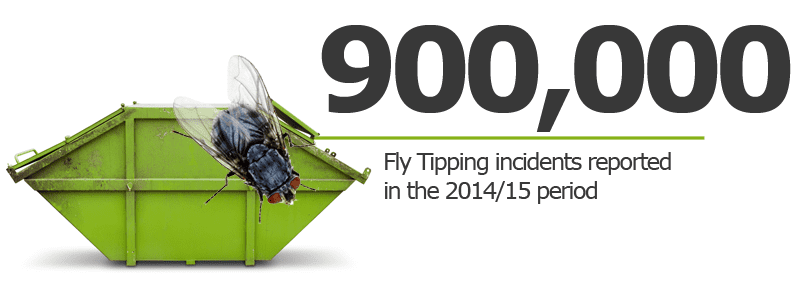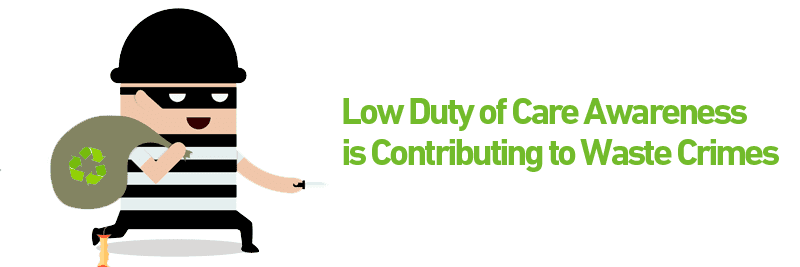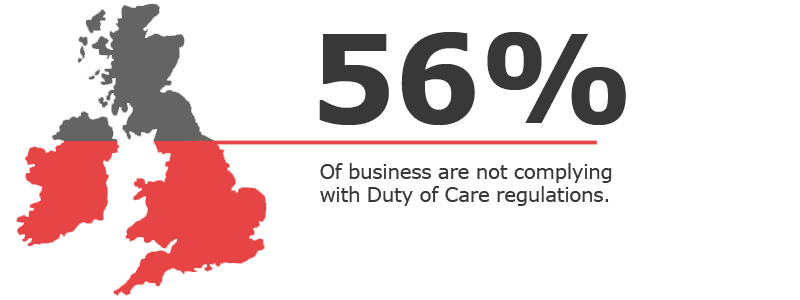Duty of Care is an important and inseparable component of your waste collection requirements. It refers to the responsibility you have over your business waste, and lasts from the moment you start to produce waste up until the moment you hand it over to, or have it collected by, a licensed waste management business.
Your duty of care requirements include:
- Classifying your waste
- Registering your premises
- Applying for a permit
- Storing your waste correctly
- Ensuring your waste is moved legally
- Ensuring that the company you hand your waste to is licensed
According to a recent awareness campaign, “Right waste, right place”, as many as 56% of UK businesses are not complying with the law.
The main offenders out of the non-compliers are small and medium-sized enterprises, sitting at 94% of the total. The ‘Right waste, right place’ campaign is less about shaming or punishing businesses who do not comply with Duty of Care, and more about educating and informing businesses of all sizes about the law and their obligation in order to stay on the right side of it.
The problem this campaign raises isn’t one of illegality or criminal attempts on behalf of business, but one of a lack of information or focus on Duty of Care. When informed, 90% of non-compliant business expressed a will to comply with regulations.
Waste Crimes
A lack of compliance with regards to Duty of Care and waste regulations has strongly contributed to the substantial growth of waste crime.
Waste crimes usually fall under the following acts:
- Tax avoidance
- Endangering the public and environment
- Illegally transporting waste in and out of the country
- Illegal waste tips
- Storing waste without a proper permit
- & Fly tipping
Fly Tipping in particular is most affected by the lack of Duty of Care awareness. During 2014/15, the number of recorded fly tipping incidents rose to 900,000 in England alone, which represents an 11% increase on the previous year, costing local authorities at least £50m to clean up.
Commercial waste is the second largest component of fly tipping crimes, and rose 18% over the same year.

What can SMEs do?
Unfortunately, being uninformed of Duty of Care requirements isn’t sufficient protection from the law, should your company be flagged as one not complying with proper regulations. The campaign shows that the number of companies who actively want to avoid the law is far, far lower than the 56% who currently fall under that category – falling mostly on misinformation and a lack of awareness.
The most important thing that SMEs can do is to educate themselves on what is required of them regarding their waste and their Duty of Care for said waste, and to develop a relationship with their waste collection provider to ensure that from production of waste to disposal of waste, both parties are doing their part to ensure that the correct rules and regulations are being followed.
For more information on Duty of Care as well as Waste Transfer Notes, head to our blog on the topic.
For more information on the ‘Right waste, right place’, an interactive website has been developed to offer an easy to use and understand place to get all the information you need.
Back

